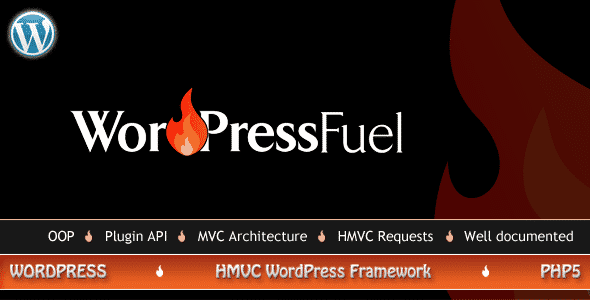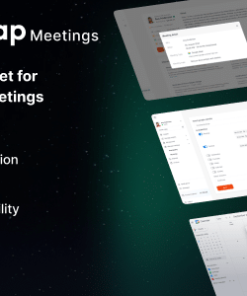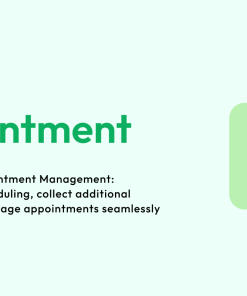(H)MVC Plugin Development Framework for WordPress
$7.00
Description








Powerful HMVC WordPress framework for WordPress Plugin Development
WordPress Fuel is the HMVC (Hierarchical Model View Controller) WordPress Plugin Development Framework. WordPress Fuel helps you write clean, modular code, and speed up the creation and maintenance of your WordPress plugins. Plugin development is much more fun and enjoyable. It is based on the best ideas of other PHP frameworks. Sample plugins included!
Simple, clean yet solid foundation for WordPress plugin development – Plugin development fun is guaranteed. Have a look at samples – WordPress Fuel Samples
Features
Rapid Plugin DevelopmentSimple, clean and solid foundation for WordPress plugin development. |
OOP Plugin APIThis is an OOP framework and everything is built using PHP5. |
|
Easy to configureIt requires nearly zero configuration. |
Masterpage LayoutsIt supports layouts with nested views. |
|
Auto LoadingLoads PHP files on demand where needed |
Clean PackageVery well commented code and easy to understand what is happening. |
|
Extremely Well DocumentedSee documentation here |
Sample plugins & StructureSimple Contact form, Pre-built Plugin skeleton |
- Separates Business, Application and presentation logic.
- OOP Plugin API
- Hassle free PHP class loader
- HMVC requests
- Loosely coupled architecture
- Extremely lightweight
- Masterpage Layouts with nested views
- Clean and maintainable WordPress Plugin development
- Handles AJAX requests
- Ability to add permalinks (rewrite) rules.
- Handles WP shortcodes using one callback.
- Ease of Maintenance
- Based on ideas of other top PHP5 frameworks
Plugins developed using WordPress Fuel
WordPress Testimonials Manager /strong>


WPEventsPlus – Events Bookings & Calendar
Why WordPress Fuel?
- Organized code: WordPress Fuel has OOP plugin abstraction layer that uses WordPress features.
- Namespacing: No need to explictly define function prefixes as everything is handled with a WordPress Fuel Plugin handler.
- Modularity: Allows you to write modular plugins.
- Plugin Layers: Ease of separation, separates the front-end and back-end logic.
- Coupling: Facilitates communication between plugins keeping the loose coupling.
- Spaghetti code: Avoids spaghetti code. Spaghetti code is difficult to follow.
Documentation
- Writing a WordPress Plugin using WordPress Fuel
- How to Install?
- WordPress Fuel Plugin versus Flat WordPress Plugin
- WP Fuel Workflow
- The book
What’s included
- WordPress Fuel Framework
- Demo Plugins
Support
Have questions? Want to discuss the possible implementations? Contact via profile.
1. All digital products are the most recent version, with no possibility of free updates. After payment, you can request an update to the most recent version for 7 days if a new version is released. Get free support within 7 days.
2. After the purchase is confirmed, download links will be available for 7 days. If a license is required, please contact us via email or ticket for assistance with activation. Our license is only valid for activation and does not include support.
3.mailto:contact We provide Mobile, PHP script installation services for $19.90. Please create a backup after installation as we do not support re-installation. For mobile app source code, we do not offer installation services.
4. If you have any questions, please contact us by email contact@gplodoo.store or create a ticket on this page
5. Please note that any digital products presented on the website do not contain malicious code, viruses or advertising. You will receive the original files from the developers. We do not sell any products that have been downloaded from other websites.
6. The response time can last up to 6 hours.













